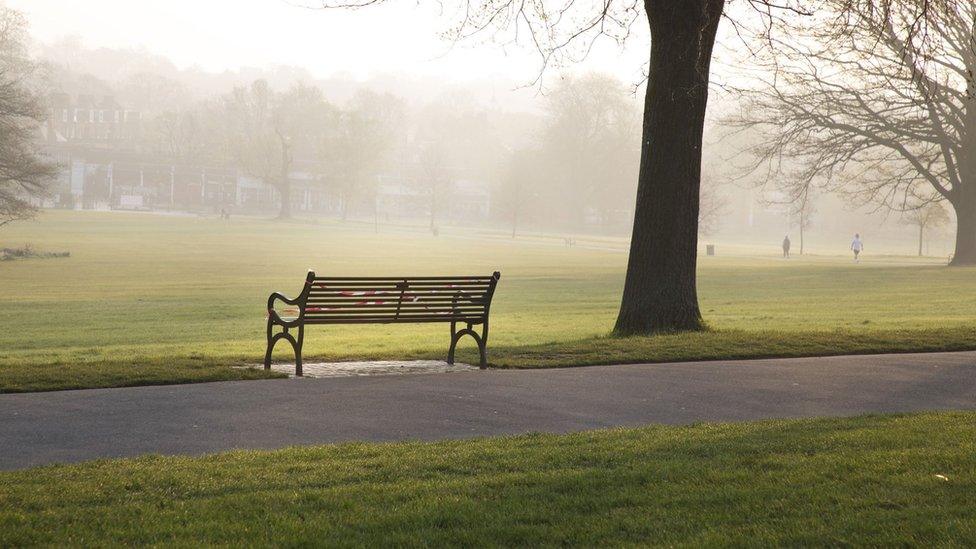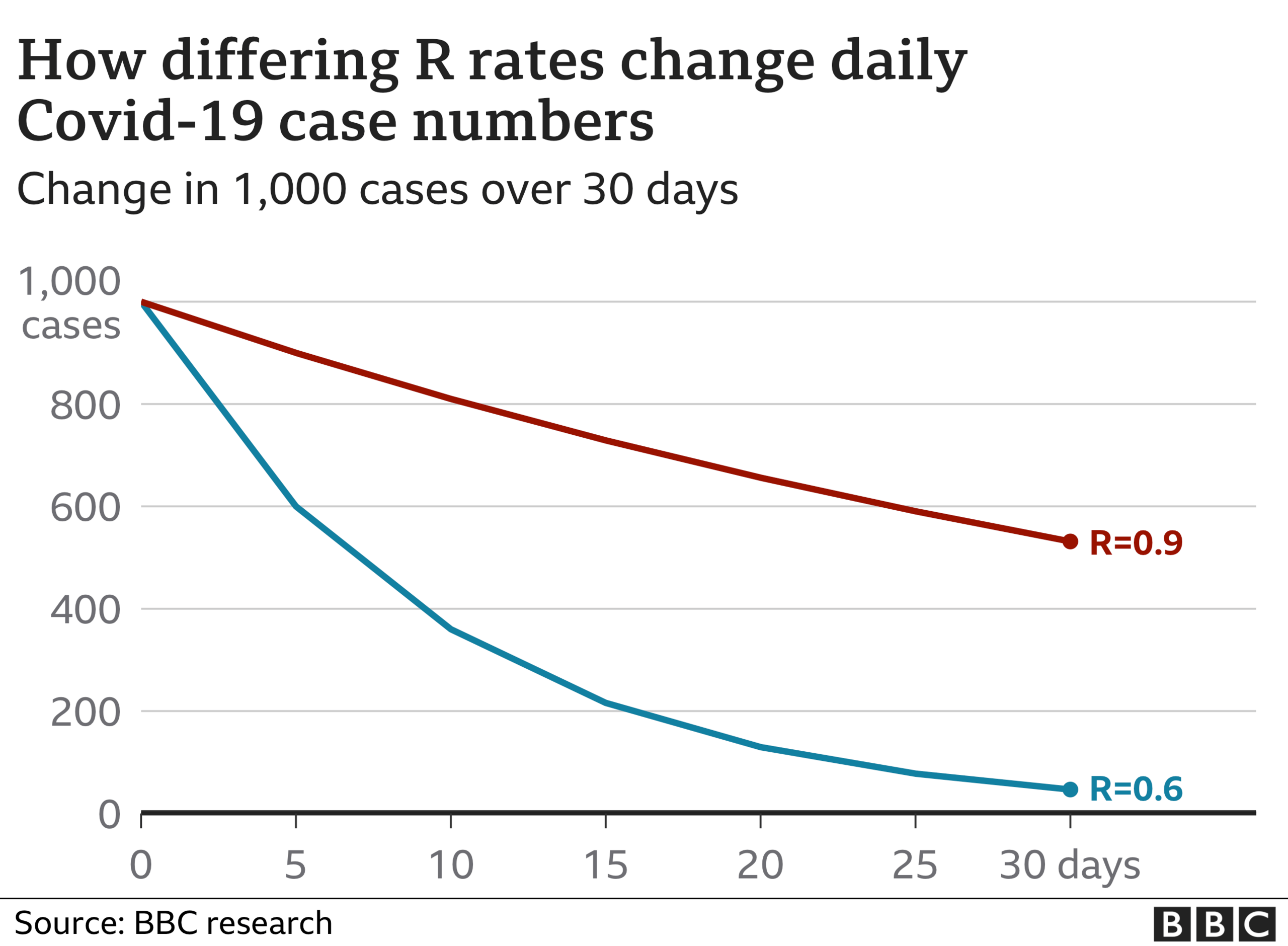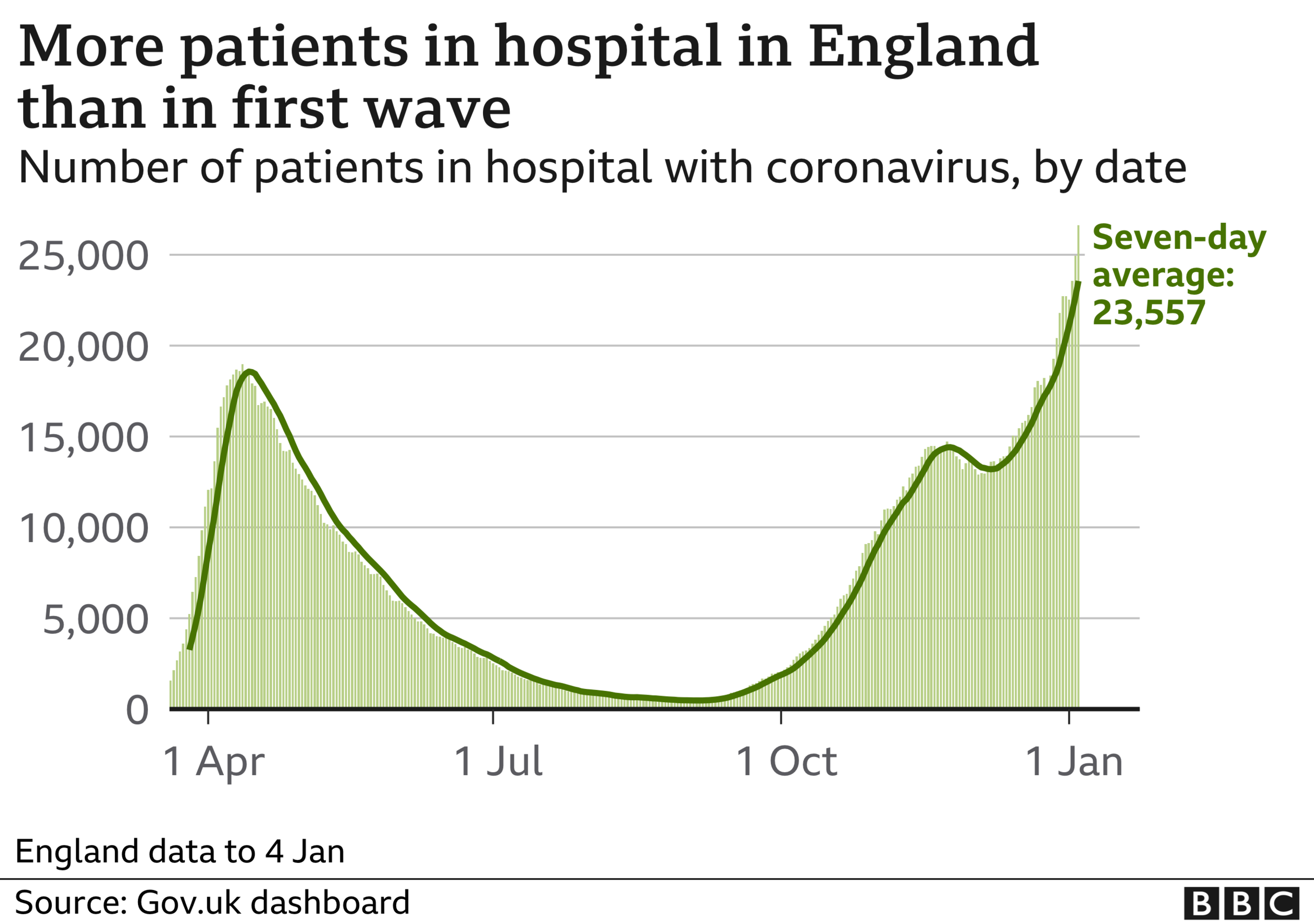Analysis: Can lockdown stop the new coronavirus variant?
- Published

Lockdowns have worked before, but can we expect the new one to do the same?
It feels like we are back in March or April last year, when the strict controls on all our lives led to a fairly quick decline in levels of coronavirus.
But one of the crucial differences this time is the new variant, which is thought to spread between 50 and 70% faster than previous forms of the virus.
Experts warn there are now no guarantees that lockdown will be enough to bring the variant under control.
"It still would not have been easy, but it would have been a much easier situation if it had not been for the new variant," Prof Neil Ferguson, from Imperial College London, told Inside Health.
"That really pushes the bounds of our ability to control the spread of the virus, even with measures that were previously relatively quite effective."
The coronavirus spreads when we come into contact with each other so moving classrooms online, telling people to stay at home and closing shops breaks many of those opportunities for human contact.
If we consider the R number - the average number of people each infected person passes the virus on to - it was about 3.0 in the run up to the first lockdown and anything above 1.0 means cases are climbing.
R fell to 0.6 during the first lockdown.
Then every 1,000 infected people passed the virus on to 600 others, who passed it on to 360 others and so on.
But if the new variant is 50% more transmissible then the R number, in the same lockdown conditions, would be about 0.9.
Then 1,000 infected people would pass the virus onto 900 others, then 810 and so on.
As you can see this leads to far slower decline.

And that assumes lockdown can get R down to 0.9 in areas where the new variant has become the most common form of the virus.
If, as some studies suggest, the variant is about 70% more transmissible then R may stay above 1.0 and cases may not fall at all.
"We'd at best flatten the curve, keep numbers at a roughly constant level, and that's frankly why there is so much emphasis on getting vaccine into people's arms as quickly as possible," said Prof Ferguson.
It is hard to lock down even harder as there are some parts of society - hospitals, supermarkets - that need to be kept open.


What happens to the number of cases over the coming weeks will be closely monitored. If this lockdown is less effective then we will have to live with it for longer.
There have been some encouraging signs over the Christmas break, which was a bit like a lockdown due to school holidays and other restrictions.
"We are in a very difficult situation here, but my initial assessment of the last few days is that the rate is slowing which is good news," Prof John Edmunds, London School of Hygiene and Tropical Medicine, told the BBC.
He added: "It looks likes those restrictions should be sufficient to stop the increase, whether they will be sufficient to bring cases down sufficiently we are yet to see."
Eventually the vaccine will give people immunity so we do not need the same controls on our lives.
Now more than ever this is a race between the virus and the vaccine.
Follow James on Twitter, external